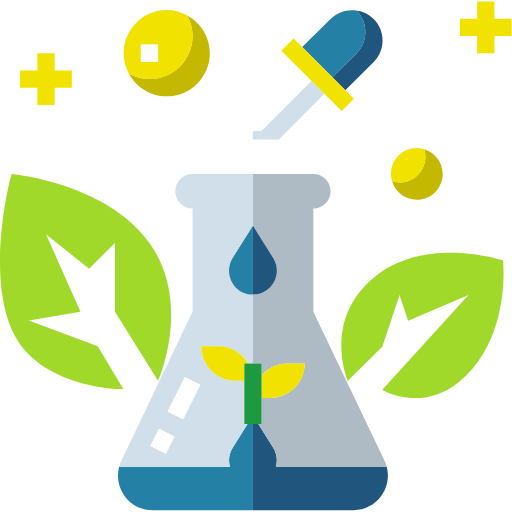AI Task Completion: Measuring AI’s Growing Capabilities

Researchers gauge AI by task completion time vs. humans, revealing rapid progress in AI's 'attention span'. AI could automate a month of software development by 2032, enhancing efficiency and workloads.
The researchers discovered that AI versions completed tasks that would take human beings less than 4 minutes with a near-100% success rate. Older AI versions performed worse at longer tasks than the most current systems.
AI vs. Human Task Completion Time
“Gauging AI versus the size of time it takes a human to accomplish a given job is a fascinating proxy metric for knowledge and general capabilities,” Kazerounian stated. Second, since the probability of carrying out a long term job without drift or mistake comes to be vanishingly little. Third, due to the fact that it is a direct procedure against the kinds of jobs we really hope to make usage of AI for; particularly solving complex human troubles.
“Determining AI against the size of time it takes a human to achieve a provided task is a fascinating proxy metric for intelligence and basic capacities,” Kazerounian said. Third, because it is a straight measure against the kinds of jobs we hope to make usage of AI for; specifically fixing intricate human problems.
The scientists located that AI models finished jobs that would take humans less than four minutes with a near-100% success rate. Nevertheless, this dropped to 10% for tasks taking more than four hours. Older AI versions carried out even worse at longer tasks than the most up to date systems.
Evaluating AI Task Capabilities
Examining tools consisting of HCAST and RE-Bench were made use of; the previous has 189 freedom software application tasks configuration to assess AI agent abilities in managing jobs around artificial intelligence, cyber safety and security and software engineering, while the last uses seven difficult flexible machine-learning study design tasks, such as enhancing a GPU kernel, benchmarked versus human professionals.
The researchers additionally created software atomic activities (SWAA) to establish just how fast genuine people can finish the tasks. These are single-step tasks varying from one to 30 secs, baselined by METR staff members.
AI’s Advancing “Focus Span”
“We locate that determining the size of tasks that designs can finish is a helpful lens for comprehending present AI capacities. This makes good sense: AI agents commonly seem to have problem with stringing with each other much longer series of activities more than they do not have skills or expertise needed to solve solitary steps,” the researchers from AI organization Version Evaluation & Risk Study (METR) explained in an article going along with the study.
Successfully, the study found that the “focus span” of AI is advancing at speed. By extrapolating this fad, the researchers projected (if without a doubt their results can be usually applied to real-world jobs) that AI can automate a month’s worth of human software application development by 2032.
Roland Moore-Colyer is a freelance author for Live Scientific research and taking care of editor at customer technology publication TechRadar, running the Mobile Computer upright. At TechRadar, among the U.K. and united state’ biggest consumer technology websites, he concentrates on tablet computers and smartphones. But beyond that, he use more than a decade of composing experience to bring individuals stories that cover electrical cars (EVs), the evolution and sensible use of expert system (AI), mixed truth products and utilize instances, and the evolution of computing both on a macro level and from a consumer angle.
To conduct their research, the scientists took a selection of AI models– from Sonnet 3.7 and GPT-4 to Claude 3 Opus and older GPT models– and matched them against a suite of tasks. These varied from simple tasks that typically take human beings a pair of minutes like looking up a basic valid inquiry on Wikipedia) to ones that take human professionals multiple hours– intricate programs tasks like writing CUDA bits or taking care of a refined bug in PyTorch.
The scientists after that rated these tasks for “messiness”, to evaluate and see how some tasks included things like the need for coordination between several streams of operate in real-time– properly making the task messier to finish– therefore are much more depictive of real-world tasks.
To evaluate these efficiency gains in AI versions, a brand-new research has actually proposed determining AIs based on the duration of tasks they can complete, versus how much time it takes human beings. The researchers released their searchings for March 30 on the preprint database arXiv, so they have not yet been peer-reviewed.
Real-World Implications of AI Progress
“The metric itself isn’t likely to alter the program of AI growth, yet it will track exactly how swiftly development is being made on certain sorts of jobs in which AI systems will ideally be utilized,” Sohrob Kazerounian, a notable AI researcher at Vectra AI, informed Live Scientific research.
Contact me with information and provides from various other Future brandsReceive e-mail from us in behalf of our relied on companions or sponsorsBy submitting your information you agree to the Conditions & terms and Privacy Policy and are aged 16 or over.
For companies, Watson noted, this could yield AIs that can tackle considerable sections of specialist workloads– which could not only improve and lower costs efficiency but also allow individuals focus on more imaginative, tactical and social jobs.
Probably, besides a new criteria metric, the paper’s greatest influence remains in highlighting how rapidly AI systems are progressing, alongside the upward pattern in their capacity to handle extensive jobs. With this in mind, Watson forecasts that the emergence of generalist AI agents that can deal with a variety of tasks will certainly be imminent.
To better understand the progressing capacities of AI and its potential impact and dangers to society, this research might develop a brand-new benchmark relating to real-world end results to allow “a significant interpretation of outright performance, not just loved one performance,” the scientists said.
“For consumers, AI will progress from a straightforward assistant right into a trustworthy individual supervisor, with the ability of taking care of intricate life jobs– such as travel planning, health monitoring, or managing monetary profiles– over weeks or days, with minimal oversight,” Watson added.
1 AI capabilities2 AI models
3 AI progress
4 machine learning
5 software development
6 task completion time
« Ancient DNA: Chernobyl Survivors & Genetic History ResearchEar Wiggling: Ancient Muscles Still Active! »
